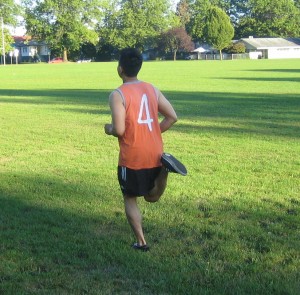The calf muscles are positioned in the rear part of the lower leg or gastrocnemius. The calf muscles are used during almost every activity such as running, walking, jumping and even climbing stairs. It is important to note that these muscles can end up sore at times for various reasons both while at rest or while engaging in physical activity. A doctor should be consulted if the individual could not determine the exact source of the pain and if self-care measures at home are not effective in relieving the discomfort.
Muscle strains
A muscle strain is considered one of the common reasons why an individual develops sore calf muscles. The muscle strains develop once the muscle fibers are torn. Overuse by working out vigorously without enough recovery time or exercising without proper warm-up can contribute to sore calf muscles.
It is vital to stretch out the calf muscles before a workout in order to prevent muscle strains. A good example is to stand with the palms flat against a wall while the feet are shoulder-width apart and rise up onto the toes to slacken the calf muscles.

Swelling
The calf muscles can become sore if the individual is suffering from swelling in the lower legs. In case the individual is not aware that he/she suffered a muscle strain, it is vital to consult the doctor about the swelling in the calves. There is a possibility that it could originate from a blood clot in the leg called as deep vein thrombosis (DVT) which is a dangerous medical condition.
Another condition that causes swelling of the calf muscles is lymphedema which leads to soreness and tightness. This condition is often linked with the removal of the lymph nodes in the lower body as a form of treatment for certain types of cancers.
Dehydration
It is important to note that dehydration is also considered as another source of sore calf muscles that manifests as a muscle cramp. The muscle cramps are characterized as tight, involuntary contraction of the muscles that triggers intense pain as well as lingering soreness once the muscle has relaxed.
When an individual is dehydrated, the level of electrolytes in the body which are minerals that hold an electric charge becomes imbalanced. Magnesium, calcium, and potassium are electrolytes that regulate nerve and muscle function. If the individual does not drink enough water and obtains enough of these nutrients in the diet, he/she could experience cramping of the calf muscles. It is recommended to add bananas, potatoes, spinach and oranges in the diet to increase the level of potassium if the individual experiences frequent muscles cramps.
Management of pain
The treatment for the sore calf muscles usually depends on the cause for the pain. Overuse injuries that trigger tenderness and minimal swelling of the muscles can be managed with application of ice, rest and over-the-counter pain medications.
The muscle cramps can be managed in the same manner with the addition of a mild massage to help loosen the tight muscles. The soreness of the calf muscles linked with lymphedema can be managed by using compression stockings which is an elastic garment that pushes out excess fluid from the leg. A doctor should be consulted if the pain persists or seem to worsen.
